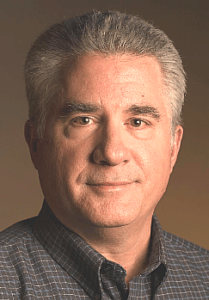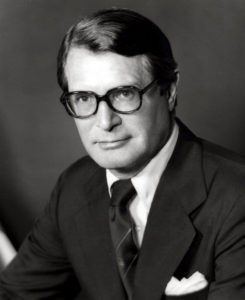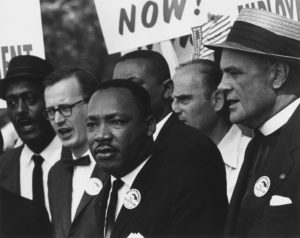 I’m a “radical moderate.”
I’m a “radical moderate.”
I thought I was so clever when I came up with that apparent oxymoron while searching for a new political identity a few years ago. Even before the election of 2016, I had abandoned the festering corpse of the Republican Party, which has since staggered to its feet as the leering zombie of Trumpism.
Was I still conservative? Yes, in many ways, from my biblical theology to my moral and political philosophy. But I could no longer support a political movement hijacked by an idolatrous cult of personality soaked in hatred, fear, lies, ignorance, bigotry, white nationalism, anti-immigrant frenzy and xenophobia. Heck, it didn’t even stand for global freedom and democracy anymore, what with Trump fawning over every dictator abroad and subverting civil liberties at home. Whatever happened to fighting communism and tyranny?
Was I now a Democrat? Not exactly, but I sure wasn’t Republican anymore. Independent? I guess so. I attended a forum for Democratic candidates for Congress in my district before the 2018 midterms. I sat in the back and slid down in my seat in case any of my Republican friends were there looking for deserters. To my amazement, I found myself agreeing with most of what was said, except for the obligatory abortion-rights boilerplate.
Two years later, I’m a volunteer for the re-election of the excellent House representative who emerged from that forum and defeated the Trump toady who previously occupied the seat. We’re a purple district — half urban/suburban and half rural, half liberal and half conservative. But my rep is smart, compassionate, bipartisan and relatively moderate in a world where moderates have become a near-extinct species. That takes guts in the current climate of D.C.
Which brings me back to the “radical moderate” idea. It certainly didn’t originate with me. It goes back to Aristotle, Confucius and Solomon, all of whom counseled the virtue of moderation. In recent American politics, advocates of “radical centrism” have pushed practical, pragmatic solutions to social problems, whether they fit into a political ideology or not.

Elliot Richardson
The late Elliot Richardson — the Massachusetts Republican most famous for resigning as Attorney General in 1973 rather than obeying Richard Nixon’s order to fire Watergate prosecutor Archibald Cox — called his 1996 book of essays Reflections of a Radical Moderate. His self-definition:
“I am a moderate — a radical moderate. I believe profoundly in the ultimate value of human dignity and equality. I therefore believe as well in such essential contributions to these ends as fairness, tolerance, and mutual respect. In seeking to be fair, tolerant, and respectful I need to call upon all the empathy, understanding, rationality, skepticism, balance, and objectivity I can muster.”
Notice he didn’t mention liberal, conservative, Republican or Democrat. He did mention dignity, equality, tolerance, respect, empathy — and skepticism. That last trait doesn’t seem to fit with the other ones. Skepticism seems to suggest a lack of faith in the possibility of change and human progress. Not so.
“Moderation does not mean truth is always found equidistant between two extreme positions, nor does it mean that bold and at times even radical steps are not necessary to advance moral ends,” wrote Peter Wehner, senior fellow at the Ethics and Public Policy Center, in The New York Times at the advent of the Trump era in 2016. “But there are general characteristics we associate with moderation, including prudence, the humility to recognize limits (including our own), the willingness to balance competing principles and an aversion to fanaticism. Moderation accepts the complexity of life in this world and distrusts utopian visions and simple solutions. The way to think about moderation is as a disposition, not as an ideology. Its antithesis is not conviction but intemperance.”
“I am a conservative left without a political home.”
Wehner, like me, is a conservative left without a political home by the Trumpist takeover of the Republican Party. We wander in the wilderness, looking for kindred souls. Classical conservatives going back to Edmund Burke have always viewed fanaticism, earthly utopias and passionate political certitudes with suspicion. Humankind, we believe, is far too fallible — and fallen — for such programs to work this side of heaven. So radical moderation looks pretty good to us at this point.
Moderation of any kind, however, “is out of step with the times, which are characterized by populist anger and widespread anxiety, by cross-partisan animosity and dogmatic certainty,” Wehner observed. “Those with whom we have political disagreements are not only wrong; they are often judged to be evil and irredeemable. In such a poisonous political culture, when moderation is precisely the treatment we need to cleanse America’s civic toxins, it invariably becomes synonymous with weakness, lack of conviction and timidity.”
“Moderation is anything but timid.”
Yet moderation is anything but timid.
The Trumpism that has ravaged the conservative movement in general — and conservative evangelicalism in particular — must be defeated, discredited and destroyed. No half-measures will do. It is a political and spiritual abomination that threatens our democracy, our Christian witness and our souls.
But in our struggle against it, we would make a grave mistake by lurching to the opposite extreme. Enough of extremism.
“The pendulum never swings the right amount,” warned commentator Roger Cohen recently. “It goes too far.”
As marches for racial justice and righting the wrongs of the past continue, we have an opportunity not just to address the racism and fear that fuel Trumpism, but to push for deeper change. This historical moment offers the best opportunity since the Civil Rights Movement of the ’60s and ’70s to pursue major policy shifts to benefit the oppressed, the marginalized and the poor.
So let’s pursue them — with radical moderation.
Tear down the Confederate monuments. I say this from my vantage point in Richmond, Va. — Ground Zero for the statue debate and capital of the dead Confederacy. We should have taken them down a long time ago. But don’t take down Washington, Jefferson, Madison or the other founders. Yes, they were slaveholders and hypocrites when they spoke of all men being created equal. But they launched the nation and a movement for human liberty that continues to shake the world. Without them we wouldn’t have a Declaration of Independence, a Constitution or a national identity to improve.

Martin Luther King in Washington, 1963. Photo by Rowland Scherman, U.S. National Archives and Records Administration, Public Domain.
As Martin Luther King Jr. said at the Lincoln Memorial in 1963, the founders wrote a check with those documents that has yet to be cashed. “It is obvious today that America has defaulted on this promissory note insofar as her citizens of color are concerned,” King declared. At long last, let’s cash the check, without denying the world-historic significance of the fallible men who wrote it.
Reform policing and hold police departments accountable for their actions and abuses. Don’t “defund” or “abolish” the police. Few people actually support such demands, and the rhetoric around them only helps Trump and his minions as they scramble to hold power and scare the public.
Reform American civic, political and religious institutions so they serve people again. Don’t destroy them; Trump already has done enough of that.
Perhaps most important, help some of your Christian brothers and sisters realize their fling with Trumpism is a spiritually deadly addiction, and it is past time to go cold turkey. But while you’re doing it, don’t bow down before your own secular idols, whatever they may be.
We’ve got a lot of work to do to pull our shared homeland out of its current death spiral. With God’s help, let’s get to it — together.
